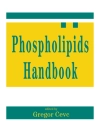The core message of this book is: computer games best realise affective interaction. This book brings together contributions from specialists in affective computing, game studies, game artificial intelligence, user experience research, sensor technology, multi-modal interfaces and psychology that will advance the state-of-the-art in player experience research; affect modelling, induction, and sensing; affect-driven game adaptation and game-based learning and assessment. In 3 parts the books covers Theory, Emotion Modelling and Affect-Driven Adaptation, and Applications.
This book will be of interest to researchers and scholars in the fields of game research, affective computing, human computer interaction, and artificial intelligence.
Jadual kandungan
Foreword.- Preface.- Part I Theory.- The Aesthetic Motives of Play.- Affect Channel Model of Evaluation in the context of digital games.- Affective Involvement in Digital Games.- PART II – Emotion Modelling and Affect-Driven Adaptation.- Multimodal sensing in affective gaming.- Emotion Modelling via Speech Content and Prosody – in Computer Games and Elsewhere.- Comparing two commercial brain computer interfaces for serious games and virtual environments.- Psychophysiology in Games.- Emotion and Attitude Modeling for Non-player Characters.- Emotion-driven Level Generation.- Emotion-Driven Narrative Generation.- Game Cinematography: from Camera Control to Player Emotions.- From Sinewaves to Physiologically-Adaptive Soundscapes: The Evolving Relationship between Sound and Emotion in Video Games.- Emotional Appraisal Engines for Games.- Part III Applications.- Emotion and Body-based Games: Overview and Opportunities.- Posttraumatic Stress Disorder (PTSD) and the role of computer games in treatment of PTSD.- Understanding and Designing for Conflict Learning Through Games.- Games robots play: once more, with feeling.- Lovotics: Love and Sex with Robots.- Index.












